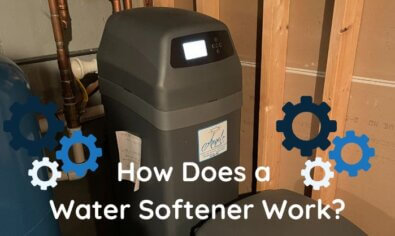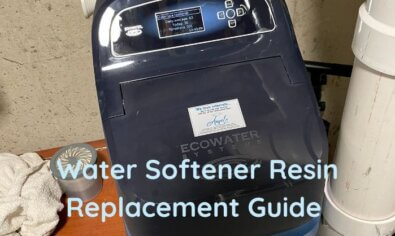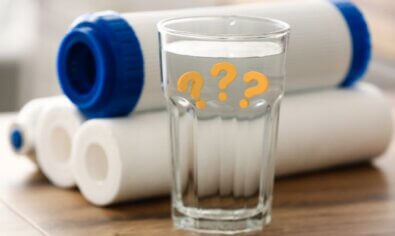Which is the Best Reverse Osmosis System for You in 2024?
This blog features the following insights:
• Reverse osmosis systems filter out more contaminants than standard water filters or municipal treatment.
• You can choose between countertop, under the sink and whole house RO systems.
• The best systems are NSF/ANSI 58 certified, American-made, BPA-free and able to enhance your water.
• Angel Water can help you find the best system for your home from a trustworthy brand like EcoWater.
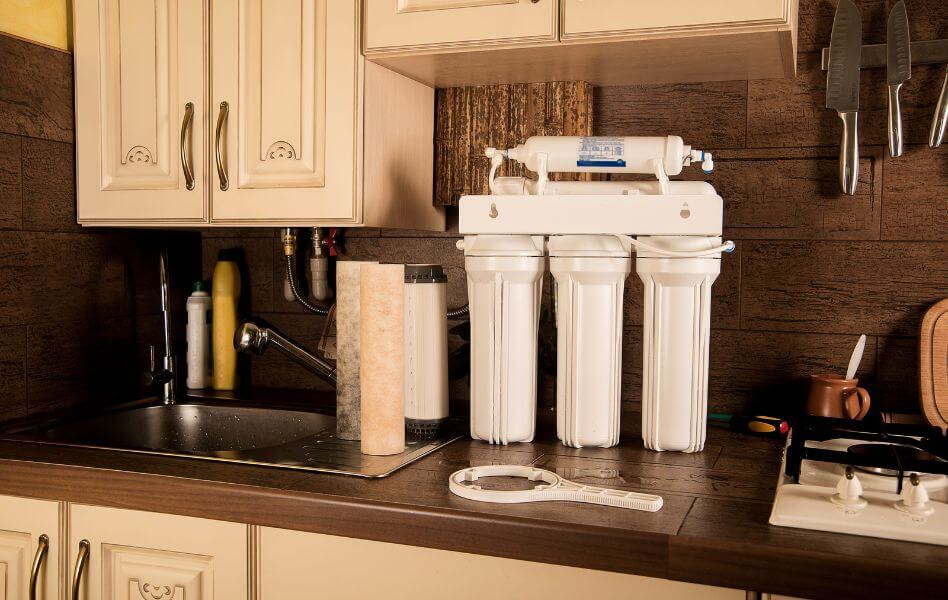
Water treatment plants can only do so much to remove basic toxins from a water supply. Reverse osmosis (RO) systems are devices you can purchase to give your water added protection. These advanced water filters remove contaminants that traditional filters can’t.
But how do you find the best reverse osmosis system for your home? Read on to discover what RO systems are, how they work, why you need one and the pros and cons of each kind.
Let’s start by discussing what a RO system is and why it could be a beneficial feature in your home.
What are Reverse Osmosis Systems, and How Do They Work?
A reverse osmosis system is a water filter that removes contaminants through a scientific process called reverse osmosis. The process works by forcing water through a semipermeable membrane, which separates the water from the contaminants.
Other water filtration systems have carbon or sediment filters that only catch certain toxins. RO systems also have these filters. However, instead of using them as the main source of filtration, they use them to pre-filter the water so that it’s ready for the RO process. In other words, RO systems have multiple filters that work as a team to get the water as clean as can be.
Because of this, RO systems remove more harmful things from your water than conventional filters. The best systems also add good nutrients back into the water to make it even healthier!
Why Do You Need The Best Reverse Osmosis System in 2024?
As you can see, RO systems go a step beyond standard water filters. Yet, there’s another reason why you should consider investing in an RO filter. It has to do with the poor quality of our tap water.
The Environmental Protection Agency (EPA) requires water to meet specific standards before it enters a public supply. However, the organization hasn’t updated these guidelines in nearly thirty years. So, the government standards for protecting your health are woefully outdated.
If the government isn’t going to do it for you, you need to take matters into your own hands. A Reverse osmosis system allows you to do that.
Now that we know what an RO system is and why it’s important, let’s discuss the pros and cons of getting one!
Advantages of RO Systems
Reverse osmosis systems remove some of the most common and harmful contaminants found in the regions we serve at Angel Water (i.e., the greater Chicago region and Southeast Florida). These impurities include:
- Lead
- Hexavalent Chromium-6
- Total Trihalomethanes
- Haloacetic Acids
- PFOA and PFOS
- Phthalates
- Radium 226/228
- Iron
- Manganese
- And many more!
However, there are additional benefits to getting an RO system beyond healthier water.
Although an RO system is a substantial investment in the short term, it can improve your finances in the long run. After all, no longer buying bottled water can put some serious change in your pocket. RO systems can also increase the resale value of your home and appeal to potential buyers.
On top of all this, reverse osmosis water also tastes better because it’s purer. Plus, the water can make your food more delicious when you cook with it.
Possible Disadvantages of Reverse Osmosis
We’re not going to pretend that RO systems are always the magic bullet. Here are a couple of examples of when reverse osmosis might not be the best choice:
- If you have well water, you might need a UV filter/chlorine injection system instead to remove bacteria and viruses from your water supply.
- Unnecessary filtering might occur because you don’t need reverse osmosis water at all of the taps and faucets in your home.
Not sure if an RO system is right for you? A licensed water treatment expert like the ones at Angel Water can help you determine if a reverse osmosis system is the best way to go.
So far, we’ve detailed what RO systems are, why you need one in your home and the advantages/disadvantages associated with them. It’s time to dive deeper into the different types of RO systems and determine which is best.
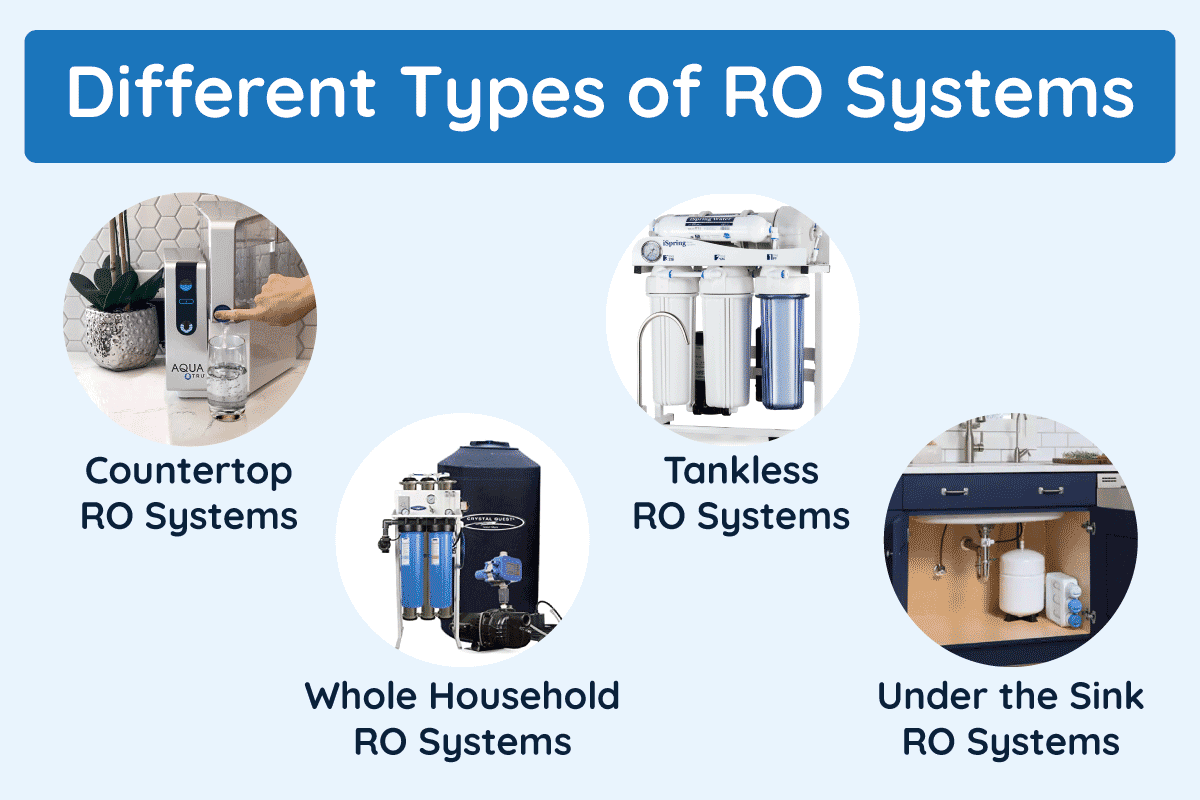
Here Are The Best Reverse Osmosis Systems for 2024
There are multiple types of RO equipment on the market. Countertop, under the sink and whole house models are the most common RO systems available.
Below we’ll review what each of these types is and why you might choose one for your home.
Countertop Reverse Osmosis Systems
Countertop RO systems are the most compact and portable RO filters available. They also don’t require any major installation or plumbing work. Instead, you can set a countertop system up on your kitchen counter and get clean water from it within minutes. The system can either be a standalone unit or hooked into a faucet.
As you might imagine, renters love these units because they are easy to set up and move. However, the biggest drawback with most countertop systems is that they don’t include as many layers of filtration. So, the portable convenience may come at the expense of the overall quality of the water.
You also must refill the tank on most countertop systems manually. So, that extra effort can be a drawback when compared to systems that automatically fill up like under the sink or whole house models.
If you’re interested in a countertop system, we’d recommend the PurAsure Countertop RO System. This multistage system takes out a wide range of contaminants, including radium 226/228, mercury, lead and more, and leaves you with great-tasting water.
Unsure About Your Water Quality? Get a Free Water Test Today!
Contaminants can affect the safety and taste of your water. Get a free water test to check your water quality and see if a reverse osmosis system can help provide clean, pure drinking water.

Under the Sink Reverse Osmosis Systems
As their name suggests, under the sink RO systems typically go underneath a kitchen sink. The system receives water from a cold-water line and delivers it post-filtration to its own faucet installed over the sink.
Because they’re tucked away, under the sink models are an excellent option for homes with limited counter space. They also offer better filtration performance and more consistent water flow than countertop filters.
Some under the sink filters are also tankless RO systems. These filters tend to be more expensive than RO systems with tanks but come with the advantage of never running low on water. Conversely, you will sometimes have to wait for the tank to fill up to get more water on a regular under the sink model.
Two under the sink models that we would recommend are the EcoWater ERO 385 and the HERO 385 Plus. The ERO 385 removes 92 total contaminants and is more efficient than older models. The filters are enclosed for easy clean-ups and replacements. With a nearly 1:1 process water ratio, the ERO385 is one of the best under the sink reverse osmosis systems out there.
The HERO 385 Plus provides the same superior filtration as the ERO 385 but with additional benefits. For example, it allows you to use Wifi technology to learn more about water usage and filter life information. This incredibly user-friendly device is also BPA-free and produces around 50 gallons of water a day.
Whole House RO Systems
You may want to consider a whole house reverse osmosis system if you want the benefits of RO filtration in other rooms of your home besides your kitchen.
For example, Angel Water once used an RO system to help a couple from Barrington whose water was causing terrible scratch marks in their shower stall. They purchased a new water softener but still experienced these problems. A water test revealed that silica was causing plumbing problems and scraping on their glassware. It was also contributing to health problems like a persistent cough.
By installing a whole house RO system, we were able to eliminate the silica and other contaminants throughout the couple’s home. Now their shower is scratch-free, and their cough is gone.
Of course, a whole house system may not be the best solution for your home. If you only need reverse osmosis to keep your drinking water clean, then an under the sink filter should suffice. Keep in mind that whole house systems are more expensive and require more maintenance than countertop or under the sink models. So, you don’t want to make the investment unless you know you need the extra filtration.
If you’re interested in a whole house RO system, we recommend EcoWater’s quality selection of models, which you can control right from your smartphone.
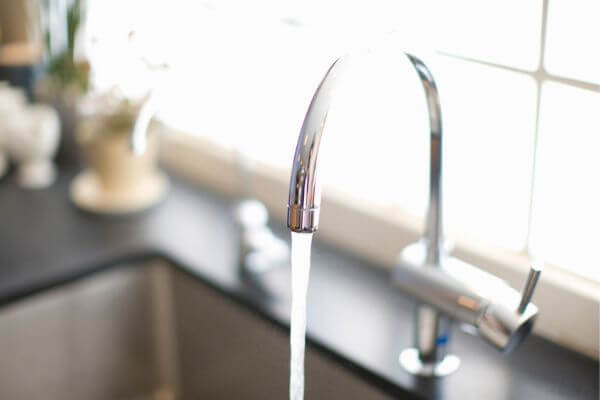
What Makes the Best Reverse Osmosis System?
No matter which type of system you choose, there are certain qualities to look out for, which all the best RO systems have. So, make sure your system checks off all the following boxes before purchasing it.
NSF/ANSI 58 Certification
You need a system you can trust to give you the healthy water you deserve. And the best indicator of trustworthiness is NSF/ANSI 58 certification.
The National Sanitation Foundation (NSF) is an independent nonprofit group that inspects the quality of water treatment equipment. NSF puts RO systems through several tests to ensure that they are safe to use, structurally sound and effective at removing contaminants. So, when you see that an RO filter has NSF/ANSI 58 certification, it means you can trust it to do what the manufacturer claims it will do.
Made in America
You also want to look for a system that was entirely made in America. We say entirely because some manufacturers use low-quality foreign-made parts to save money when making their systems. These systems tend to be less effective and break down sooner over time than 100% American-made filters.
BPA-Free
A reverse osmosis system should protect your health, not threaten it with harmful chemicals like bisphenol A (BPA).
Bisphenol A is an industrial chemical used to make many plastic products. However, research has linked BPA contamination in food and water to possible health defects in infants. Therefore, the government prohibits the use of BPA in the production of baby bottles and other food and beverage containers.
If the bottles you use to contain your water can’t contain BPA, your RO system shouldn’t either. Unfortunately, many lower-priced systems do contain BPA, so you need to be careful. Instead, make sure you invest in a higher-quality system that is BPA-free.
Produces Enhanced Water
As we mentioned above, the best RO systems add healthy nutrients to water after filtering it. The very best systems can even improve the pH of the water to produce alkaline water. One example of this is the EcoWater HERO 385 Plus Alkaline.
So, be on the lookout for value adds like this to ensure you’re getting the healthiest water possible.
Comes From a Top Brand
You may have noticed we mentioned EcoWater a lot in this blog. That’s because it’s one of the only brands that provide all the benefits we listed above and more. EcoWater RO systems are NSF/ANSI 58 certified, American-made, BPA-free and produce some of the healthiest water possible. They also come with bonus features like Wifi and smartphone connection.
For all these reasons, we can’t recommend EcoWater products strongly enough for your RO needs.
Need More Help Choosing an RO System?
The sky’s the limit when it comes to these filters. There are so many options out there, so it’s critical to understand what makes each one different. Knowing about the pros and cons of each system can help you make a more informed decision. Working with a trusted manufacturer is also key. Enter Angel Water!
Ready for Cleaner Water? Schedule an Appointment Now!
Ensure your family has access to clean, great-tasting water. Schedule an appointment with our specialists today to learn how a reverse osmosis system can purify your drinking water.

